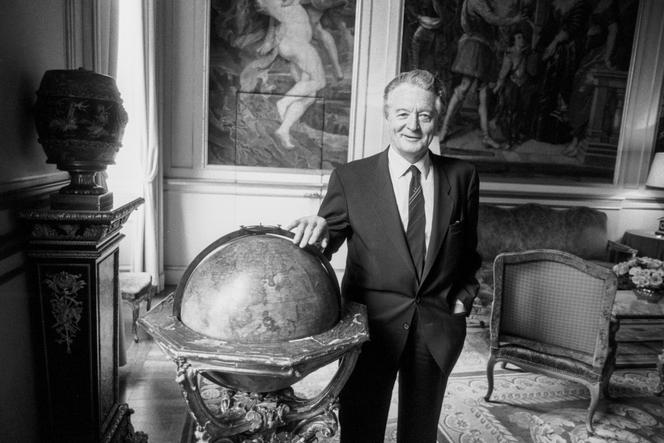


Recklessly fond of manipulation, women and money, Roland Dumas was a charmer. He also had an understated intelligence and irresistible interpersonal skills, along with the ability to get out of the bad situations his scheming led him into.
When François Mitterrand appointed him president of the Constitutional Council, two months before leaving the Elysée Palace in 1995, he was greeted in the lofty institution by murmurs of disapproval. "One box isn't ticked, the one for morality," insisted the guardians of the Constitution. The former minister of foreign affairs did nothing to refute them. Less than five years later, he was forced to resign, caught up in the fraud scandal of the petroleum company Elf, surrounded by right and left-wing wheeler-dealers and high-level courtesans.
Nonetheless, the bel canto fan continued to turn up at Opera premieres, with his Legion of Honor ribbon looking like a drop of blood on the lapel of his suit. In recent years, before his death at the age of 101 on Wednesday, July 3, as first reported by Le Figaro, he congratulated himself on having gone through life like on a rollercoaster. "The opposite of an ordinary life," he used to say when receiving guests at his home, in the heart of the Ile Saint-Louis in Paris, where he lived in the building where sculptor Camille Claudel had resided and where he himself collected paintings, engravings and old books, with his lawyer's robe hanging in the entrance.
Born on August 23, 1922, in Limoges in central France, Roland Dumas undoubtedly owed his spirit of adventure to the tragedy that marked his youth. His father, Georges Dumas, a public finance official who joined the Resistance early on, was shot in March 1944 by the Germans. Roland Dumas also participated in the Resistance – not as gloriously as he would claim, but he did take risks. In May 1942, he planned to organize a boycott of a Berlin Philharmonic Orchestra concert with fellow students but was arrested by the French police and detained in Fort Barraux, near Grenoble. He managed to escape quickly, but the period marked him as a thrill seeker and led him to live a life played on a throw of the dice.
After the war, he studied law, then attended the National Institute for Oriental Languages and Civilizations and the London School of Economics, thanks to a two-year scholarship offered to the children of Resistance fighters. After settling in Paris, he tried his hand at journalism, first at L'Agence économique et financière and then at the foreign desk of L'Information, the forerunner of the Nouveau Journal and La Tribune. In 1950, he finally opted for the bar, because, as he said, it "corresponded best to my training, my character, my ambitions and my gifts."
You have 85.28% of this article left to read. The rest is for subscribers only.
